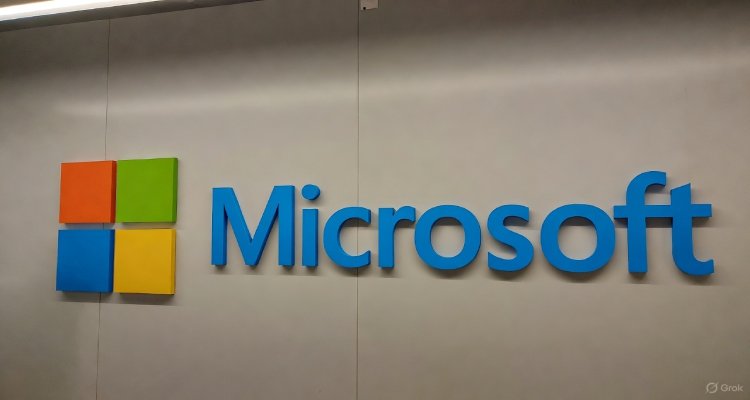Byte-Sized News: Today’s Hottest Updates in Tech
Catch up on today’s top tech headlines—from AI breakthroughs to industry shakeups—with bite-sized, insight-rich coverage designed for fast, informed reading.
Introduction: A Surge of Signals in a Digital World
In today’s hyperconnected world, every scroll delivers a fresh tech surprise. From AI-driven search wars to billion-dollar chip moves and privacy revolutions, the pulse of technology beats faster than ever. In this byte-sized digest, we break down today’s hottest stories shaping the digital age, helping you stay ahead without the overwhelm.
Context: The Rapid-Fire Nature of Tech in 2025
Tech is no longer a single industry—it’s the engine behind every sector. Whether it’s AI reshaping education, chips powering national strategies, or privacy laws redefining global commerce, technology now sets the tone for our economic, social, and political landscape. With daily shifts influencing millions, timely awareness is no longer optional—it’s essential.
Main Developments: Today’s Top Tech Headlines at a Glance
1. OpenAI Unveils Voice Mode Upgrade for ChatGPT
OpenAI’s latest rollout for ChatGPT includes a significantly enhanced Voice Mode, now capable of near-instantaneous real-time conversations. Unlike the earlier version with a 2–3 second delay, this upgrade allows ChatGPT to respond like a human conversational partner—marking a major leap toward natural AI interaction.
Why It Matters:
This upgrade pushes ChatGPT further into personal assistant territory, competing with Siri, Alexa, and Google Assistant. Its advanced capabilities could soon be integrated across mobile apps, education platforms, and customer service tools.
2. Apple’s AI Strategy Leaks Ahead of WWDC 2025
Ahead of Apple’s Worldwide Developers Conference, leaked documents suggest the iPhone-maker will announce deep integrations with ChatGPT and its proprietary GenAI. The expected features include AI-generated messages, summaries, and voice commands—all processed privately on-device using Apple Silicon.
Why It Matters:
The leak signals Apple’s long-awaited AI play, finally stepping into a domain dominated by Google and Microsoft. With an emphasis on privacy and local processing, Apple could disrupt the AI race by doing more with less data.
3. NVIDIA Stock Surges Past $3 Trillion, Overtakes Apple
NVIDIA’s meteoric rise continues as it briefly surpassed Apple in market cap, becoming the world’s second-most valuable company. With AI chip demand skyrocketing, NVIDIA’s data-center business and GPU leadership position it as the cornerstone of the AI economy.
Why It Matters:
This shift symbolizes the transfer of power from consumer tech giants to infrastructure providers. As generative AI adoption scales, companies like NVIDIA are becoming indispensable—fueling everything from autonomous vehicles to LLMs.
4. Google’s AI Overhaul: Search Evolves With “AI Overviews”
Google has quietly rolled out “AI Overviews” across the US, providing AI-generated answers at the top of search results. While user engagement has spiked, publishers are sounding alarm bells over plummeting traffic and lack of compensation.
Why It Matters:
This experiment could rewrite the internet’s economy. If users no longer click through to publishers, ad revenues could dry up—and so could the incentive to create quality content. Legal and ethical debates are intensifying as the web adjusts.
5. Elon Musk’s xAI Raises $6 Billion to Challenge OpenAI
Elon Musk’s startup xAI has raised a staggering $6 billion in Series B funding, aiming to build an “honest” alternative to OpenAI’s models. The company’s Grok chatbot, already integrated with X (formerly Twitter), will reportedly be made open-source.
Why It Matters:
This could reshape competition in the AI space. Open-source access could democratize powerful AI tools and challenge the dominance of closed platforms, while further polarizing the tech community along ideological lines.
Expert Insight: What the Pros Are Saying
Benedict Evans, tech analyst and former a16z partner, tweeted:
“We’re not just watching the evolution of tech—we’re watching the re-architecture of everything: education, medicine, labor. It’s all in motion.”
Kate Crawford, AI researcher and author of Atlas of AI, noted:
“The current surge isn’t just about smarter systems—it’s about redefining who controls information. That’s the real power play.”
Meanwhile, Reddit threads and X users reflect mixed feelings. Some hail the progress, especially in productivity and creativity, while others voice growing concern about job security, misinformation, and data misuse.
Impact and Implications: What Comes Next?
- For Users: AI will increasingly be embedded into everyday tools—from texting and shopping to navigating healthcare systems. Expect convenience, but also a steeper learning curve in managing digital autonomy and privacy.
- For Businesses: Companies must adapt or risk obsolescence. Startups embracing AI automation are moving faster and cheaper, while traditional firms are scrambling to restructure workflows and retain relevance.
- For Policy and Society: Governments worldwide are introducing AI governance frameworks, but they’re struggling to keep pace. The EU’s AI Act and the U.S. blueprint for an AI Bill of Rights are early attempts, but implementation remains murky.
Conclusion: The Byte-Sized Truth Behind the Buzz
From trillion-dollar market shifts to everyday AI assistants, today’s tech landscape is a collision of innovation, ambition, and uncertainty. While the headlines change daily, one theme persists: power is decentralizing, interfaces are humanizing, and the race to responsibly scale is just beginning.
So whether you’re a founder, policymaker, or simply trying to make sense of your smartphone’s latest update, staying tuned isn’t just smart—it’s survival.
Disclaimer: This article is based on publicly available data as of June 2025. While all efforts have been made to ensure accuracy, developments in the tech space evolve rapidly and may have changed since publication.











